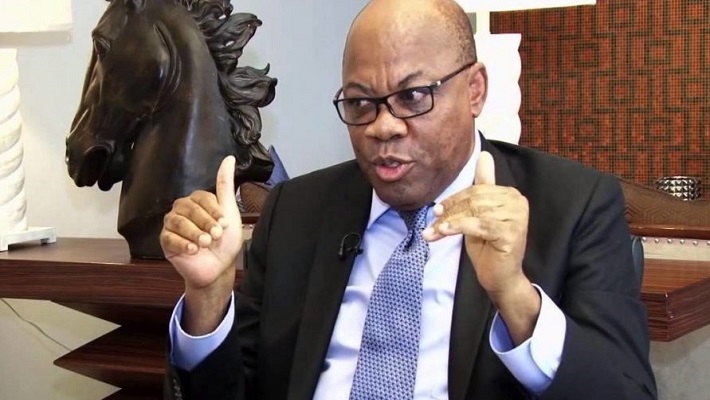
A Senior Advocate of Nigeria, Dr Olisa Agbakoba, has faulted the agitation for state creation in the South-East by some House of Representatives members, describing the proposal as a misplaced priority.
Agbakoba, a former President, Nigeria Bar Association, spoke during an interview in Lagos on Sunday.
The House of Representatives recently passed for second reading, a bill seeking the creation of Etiti State out of Abia, Anambra, Ebonyi, Enugu and Imo states from the South-East geopolitical zone.
Lawmakers should advocate restructuring not additional state creation, says Agbakoba
‘‘The the National Assembly should, instead, return the country to the regionalism by collapsing the 36 states into six to eight regions or geopolitical zones.’’
The bill was sponsored by members of the House, Godwin Ogah, Miriam Onuoha, Kama Nkemkama, Princess Nnabuife and Anayo Onwuegbu
Leading the debate on the general principles of the bill, Mr Ogah (LP, Abia) said the establishment of Etiti State was not just a matter of administrative convenience, but a step towards ensuring balanced regional development and effective governance.
The lawmaker said the bill was a response to the aspirations of the people of an important region to the country and aligned with the principles of equity and inclusivity enshrined in the country’s democratic idea.
Similarly, some lawmakers and stakeholders also called for the creation of Anioma State from states in the South South and South East regions.
One of those leading the call, Senator Ned Nwoko (PDP-Delta North) said that the creation of Anioma State would correct what he described as the marginalisation of the South-East geo-political zone.
According to him, if Anioma State is created, it will increase the population of the South-East, land mass and resource base of the region.
In his view on the matter, Mr Agbakoba said Nigeria does not presently need more states.
According to him, instead, lawmakers and other political stakeholders should be concerned about restructuring Nigeria to a regional government to reflect the real diversity of the country.
He added that he was not in support of an additional state because most of the 36 states were economically unviable, insolvent and not capable of bringing about infrastructural development and even paying the proposed minimum wage.
He said, “State creation at this present harsh economic will, no doubt, lead to increase in the number of National Assembly members, ministers, local governments, and others, which would further increase the cost of governance in the country. This is coming at a time when most Nigerians are starving due to rising food prices. Insurgents, bandits and terrorists are abducting people for ransom in other states of the country. Therefore, the National Assembly should, instead, return the country to regionalism by collapsing the 36 states into six to eight regions or geopolitical zones, each of which will have a leader. This means that the present Nigeria 1999 Constitution would be amended or a new one written to accommodate this proposal. This is because making a new constitution for Nigeria has become an overriding imperative based on the fact that new political realities and conundrums have cropped up in the country.’’
Mr Agbakoba, a human right activist, said the only way to resolve the socio-economic and political problems was to amend the 1999 constitution to pave the way for a regional system of government.
He said regional governments were once successfully run with Chief Obafemi Awolowo in charge of the South West, Chief Michael Okpara in charge of South-East and Ahmadu Bello in the North.
Mr Agbakoba said since Nigeria left the modernity of regionalism, the states had been unviable, apart from Lagos and Rivers states.
Mr Agbakoba said though the impulse to create a sixth state in the South-East was for the purpose of balance, the greater good of Nigeria would be felt if regionalism was given a chance.
Mr Agbakoba further stated that a regional system of government would enable the unviable states to come together and become stronger.
He said an average person from the South-East would support an additional state in the region, but that anyone who could see the big picture could tell that creation of additional states would not guarantee development.